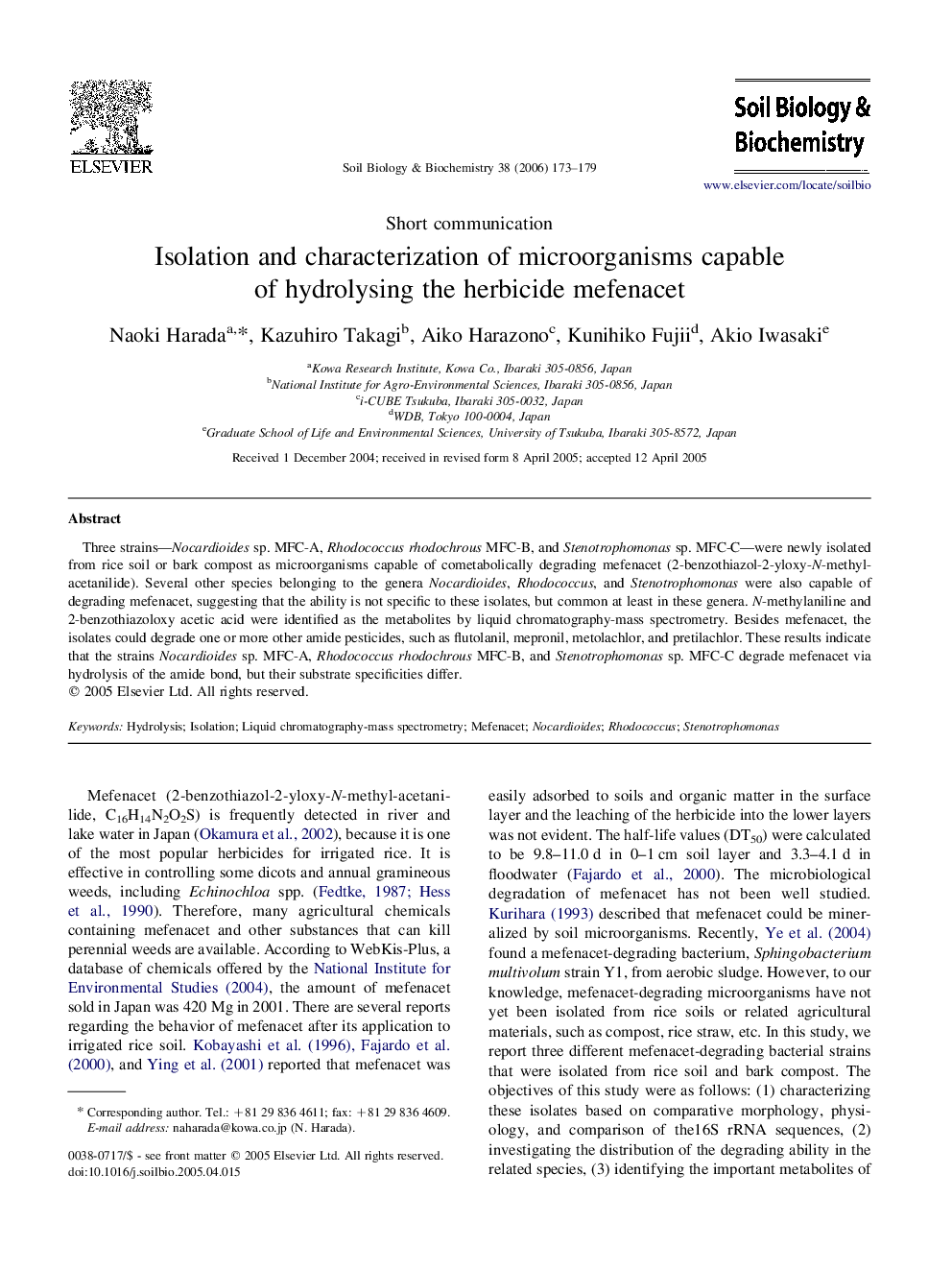| Article ID | Journal | Published Year | Pages | File Type |
|---|---|---|---|---|
| 2026760 | Soil Biology and Biochemistry | 2006 | 7 Pages |
Abstract
Three strains-Nocardioides sp. MFC-A, Rhodococcus rhodochrous MFC-B, and Stenotrophomonas sp. MFC-C-were newly isolated from rice soil or bark compost as microorganisms capable of cometabolically degrading mefenacet (2-benzothiazol-2-yloxy-N-methyl-acetanilide). Several other species belonging to the genera Nocardioides, Rhodococcus, and Stenotrophomonas were also capable of degrading mefenacet, suggesting that the ability is not specific to these isolates, but common at least in these genera. N-methylaniline and 2-benzothiazoloxy acetic acid were identified as the metabolites by liquid chromatography-mass spectrometry. Besides mefenacet, the isolates could degrade one or more other amide pesticides, such as flutolanil, mepronil, metolachlor, and pretilachlor. These results indicate that the strains Nocardioides sp. MFC-A, Rhodococcus rhodochrous MFC-B, and Stenotrophomonas sp. MFC-C degrade mefenacet via hydrolysis of the amide bond, but their substrate specificities differ.
Keywords
Related Topics
Life Sciences
Agricultural and Biological Sciences
Soil Science
Authors
Naoki Harada, Kazuhiro Takagi, Aiko Harazono, Kunihiko Fujii, Akio Iwasaki,
